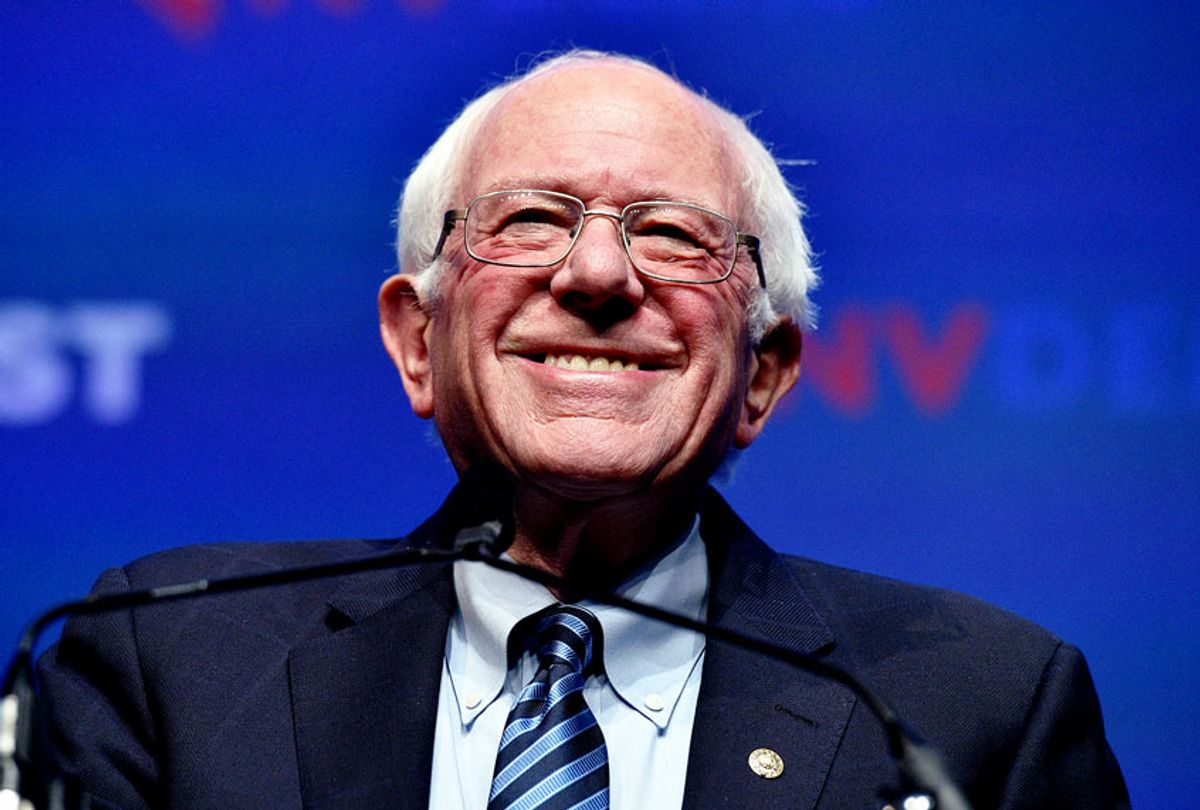Sen. Bernie Sanders, I-Vt., a staunch opponent of secret campaign contributions, declined to call on a political nonprofit organization he founded to disclose its donors despite a Federal Election Commission complaint alleging that the group violated campaign finance laws by accepting donations above the legal limit.
The watchdog group Common Cause filed a complaint to the FEC alleging that the Sanders-founded group Our Revolution violated election laws by accepting nearly $1 million from donors who contributed more than the legal limit over three years and whose identities were not disclosed. Some donors gave six-figure sums, The Associated Press reported. The complaint argued that since the group was founded by Sanders, it should comply with campaign laws restricting contributions to $5,000 rather than act as an independent political nonprofit.
Our Revolution has paid for social media ads and voter mobilization efforts in support of the Sanders campaign but will not have to disclose its donors for this election cycle until after the election, according to the AP.
Sanders has long railed about the increase in dark money that flooded elections after the Supreme Court's 2010 Citizens United decision. Though Our Revolution is not a super PAC, it is a tax-exempt political nonprofit that was allowed to raise unlimited sums without disclosing its donors under the court ruling.
The AP previously reported that the group functions "much the same" as a super PAC and flouted campaign finance laws. The group publishes the names of some donors on its website, even though it is not required to do so. But it allows donors to choose to remain anonymous.
The group's activities are small compared to some nonprofits and super PACs, raising just $2.7 million in 2018. About $500,000 came from 15 anonymous donors, two of whom made six-figure donations, The Washington Post reported. Tax filings and FEC records show the super PAC National Nurses United for Patient Protection previously contributed $300,000 to the group and the Sixteen Thirty Fund, a nonprofit that shields its donors' identities, contributed $100,000 in 2017, according to the AP.
Common Cause claims the group should be required to disclose its donors because of Sanders' ties to the group, arguing it should comply with laws that apply to presidential campaigns.
"Because Sanders set up Our Revolution and they have raised and spent money in candidate elections, Our Revolution is required to comply with contribution limits, register with the FEC and discloses its donors — but it hasn't," Paul S. Ryan, an attorney for Common Cause who is definitely not the former House speaker, told the AP. "It's his establishment of the group that triggers these laws. That means a $5,000 limit, full donor disclosure and no contributions from prohibited sources."
Our Revolution denied any wrongdoing, arguing that the complaint was "meritless" and "legally flawed."
"The simplistic and legally flawed analysis advanced by Common Cause is based both on a misunderstanding of the law and a misrepresentation of the facts," Our Revolution spokesman Paco Fabian told the outlet. "To claim that Our Revolution is simply an arm of the Bernie Sanders 2020 campaign is an insult to our grassroots members and all that we have accomplished . . . Our mission is much more than just electing Bernie to the White House."
It is unclear if the FEC will consider the complaint, since it does not currently have enough members to enforce election laws.
Sanders told New Hampshire Public Radio over the weekend that he would have "no problem" with the group disclosing its donors.
"You've got groups all over the country that legally can do what they want, and I would be very happy to say and to urge an end to all that if other candidates do the same. So I am not in favor of these things. That is the way it is," he said. "I think we should end super PACs right now. So I would tell my opponents who have a super PAC, 'Why don't you end it?' And certainly that's applicable to the groups that are supporting me."
But Sanders claimed that it would be a violation of FEC rules barring coordination with campaigns for him to ask the group to disclose its donors.
"If I got on the phone and I told them what to do, that would be a violation of campaign finance law," he claimed.
But campaign finance experts rejected his claim.
"It's dubious," former FEC lawyer Adav Noti told the AP. "A full disavowal — 'I do not want an outside group spending money from secret, wealthy donors to support my election' — there's nothing in the law that would prohibit a candidate from saying that."
Under the current law, groups that are "directly or indirectly established" by lawmakers or candidates cannot "solicit, receive, direct, transfer or spend funds" on election activities that exceed "limitations, prohibitions and reporting requirements."
Fabian tried to differentiate the group's activities with those of a super PAC by arguing that it does not spend large sums of money on TV ads and its average donation amount was about $20.
"We invest our money . . . in things like organizing, and phone banks and canvassing voters on issues that matter," he told the AP. "We aren't running ads or doing glossy mailers."
But Noti, who now works for the nonpartisan Campaign Legal Center, told the outlet that the relationship between Sanders and Our Revolution is an example of the very campaign finance problem that Sanders has long railed against.
"The phenomenon of candidates using nonprofits to supplement their campaigns is a real problem," he said. "This is a creation of Citizens United and the fact that the FEC won't crack down on coordination between these outside groups and candidates."



Shares